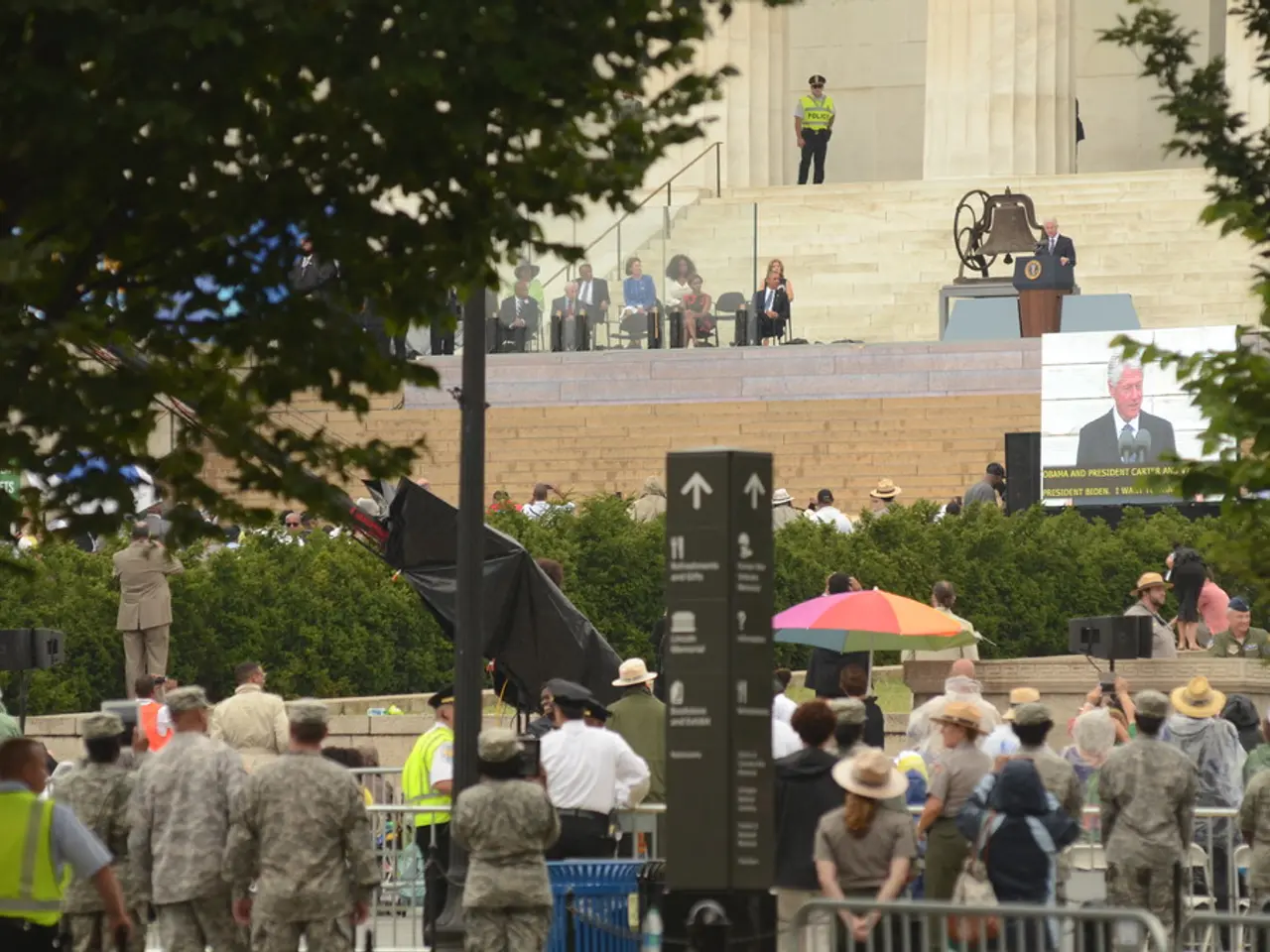Government workers associated with the Department of Veterans Affairs demonstrating nationwide in opposition to modifications initiated by the Trump administration
In the year 2025, concerns are mounting among VA workers, unions, veterans, legislators, and community members over the Trump administration's policies that they believe are harming veteran care and employee stability.
The Trump administration has made it mandatory to include new hiring questions on most federal job applications. However, the focus of the ongoing debate centers around the administration's planned and ongoing staff cuts, elimination of union contracts, and related policies.
The Department of Veterans Affairs (VA) initially planned to cut at least 70,000 jobs, a number that has since been scaled down to 30,000 layoffs. Yet, significant voluntary attrition continues to raise concerns about understaffing and its impact on patient care.
Moreover, the termination of nearly all collective bargaining agreements with unions, affecting about 80% of VA employees who are union members, has raised concerns about constrained labor protections and collective bargaining rights.
Accusations of a broader push to privatize veteran health care have also surfaced, with critics arguing that such actions undermine the VA’s veteran-centric care model and divert funds away from public services to private companies.
The disruption to workforce morale and recruitment is also a significant concern, with many doctors rejecting jobs due to uncertainty and instability.
In response, VA workers, unions (especially the American Federation of Government Employees), veterans, legislators, and community members have organized rallies and public demonstrations. These rallies aim to protest the planned layoffs, the scaling back or elimination of union protections, the risk to the quality and accessibility of veteran care, and the political motivations alleged behind these administrative decisions.
For instance, a rally held on August 22, 2025, in Newington brought together union leaders, veterans, and state and national legislators opposing contract cancellations and layoffs. Union leaders characterize the administration’s actions as retaliation and class warfare against workers defending veterans’ interests.
These public events serve both as expressions of dissent and efforts to mobilize political pressure to reverse or soften these policies. Today, VA union members are gathering in more than 10 cities to sound the alarm and press the Trump administration to reverse course.
The VA's actions come amidst other developments in the federal sector. The Pentagon has yet to close six long-standing healthcare-related recommendations from the Defense Department's inspector general. The Office of Federal Procurement Policy is pushing best-in-class contracts and preferred acquisition vehicles to the front of the line for common goods and services. Employees from the Department of Veterans Affairs are not the only ones rallying; the website is protected by copyright, and the Government Accountability Office has recommended that agencies more clearly lay out all the required steps to make a name change for federal employees.
However, the VA-related protests have garnered significant attention, with employees from the Department of Veterans Affairs rallying across the country today in protest of the Trump administration's changes to the VA. The website is not intended for users located within the European Economic Area. A new Defense Department-commissioned study found that the Pentagon's complex duty status system for National Guard and Reserve members should be replaced with just four broad categories. Yet, there are no recommendations for helping transgender federal employees change their names or genders on personnel records.
As the situation continues to unfold, it remains to be seen how the Trump administration will address these concerns and whether any changes will be made to the current policies.
- The federal workforce, particularly within the Department of Veterans Affairs (VA), is facing a contentious acquisition policy under the Trump administration, with concerns rising over planned and ongoing staff cuts, elimination of union contracts, and a potential privatization of veteran health care.
- In response to these policies, proposals for workplace-wellness and health-and-policy legislation have been advocated by VA workers, unions, veterans, legislators, and community members, aiming to improve employee stability, protect labor rights, and ensure quality veteran care.
- The ongoing debates about the federal workforce and its related policies are not isolated incidents; they are intertwined with broader discussions on policy-and-legislation, politics, and general-news, as various government departments grapple with union disputes, personnel issues, and procurement reforms.
- As VTAs actions and the subsequent protests continue to make headlines, attention has also been drawn to other federal sector developments, such as the Defense Department's plans to simplify duty status categories for National Guard and Reserve members, but lacking proposals to assist transgender federal employees with name or gender changes on personnel records.




